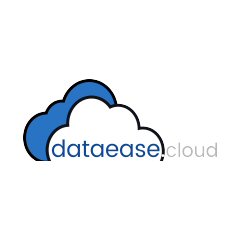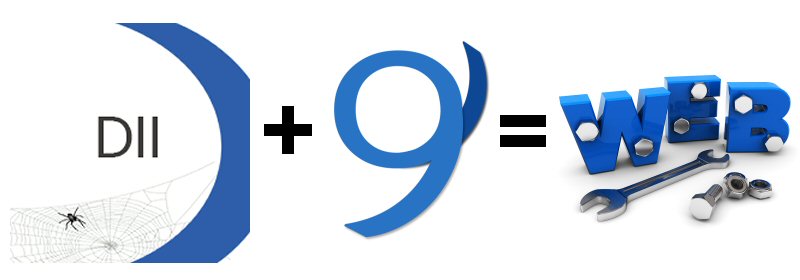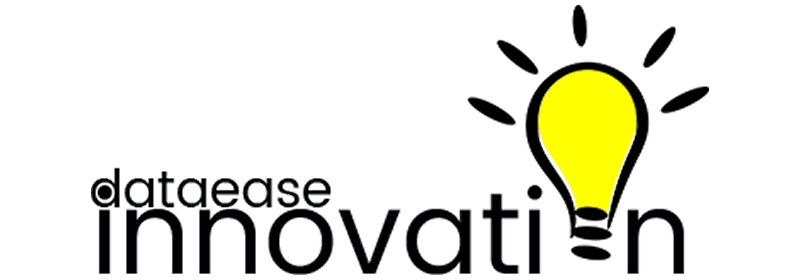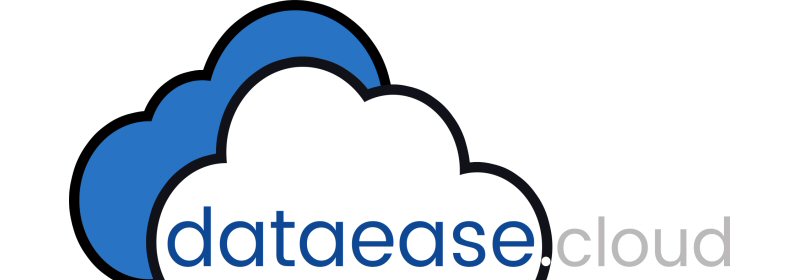KEEP IN TOUCH
2018 will be the most exciting dataease year yet....
Subscribe to news from dataease
I would love to recieve information on updates and new products from Dataease until I unsubscribe.
2019/Planned Releases
DataEase 2019 will be a very exciting period for Dataease users. We will launch a number of new product that will put Dataease properly back on the map.

DataEase 9 (Soon..)
The first of the future and the last of the past. Fully compatible with DE85 but packed full of new features like text/html based reporting, new predictive DQL editor. Finally a new DataEase as it should be. We worked hard to get this out towards the end of the year 2018 but as this is the standard for all future versions we had to defer the release simply to get a good enough first impression.

LegEasy DII (ETA End of Year)
The follow up version to the enormous success LegEasy4DOS. Completely reworked with new interface and new and faster core.

DataEase 9 Web Developer (ETA 2020)
The development tool for the ones that want to go web all the way. 100% web with built in web development server and publishing tools for DataEase Web Provider. Develop web ontop of DE9, DFW6 and DFD5! (EarlyBird Option Now!)

DataEase 9 Web Provider (ETA 2019)
A full web/app hosting service for DataEase 9 Web Apps. Develop the application with DataEase 9 Web Developer and publish them directly to the provider. The Deployment Services will keep track of your changes and automatically update the production version.

dataease.cloud (ETA 2019)
We offer to host your DataEase applications in the cloud and you can access them via your web browser on any device anywhere in the world. (EarlyBird Option NOW!)
What we present here is just a small teaser of what is to come. You will now be able to keep your existing application in whatever version of DataEase when at the same time develop new functionality both for Windows, Web and Mobile.
New best practice in DataEase is no longer to migrate to the latest version but keep things as they are and integrate them all into one happy environment and you will also be able to integrate your data with almost anything via our JSON interface and provider.
Don't take our word for it. If you are interested in going all the way now, contact us for a call back and we will discuss your requirements.
Last but not least, opt in to us sending your information on new products, trials and upgrades
Our services Keep in Touch
New Services
Send us a message and request a call back if you want to discuss any of the services below. Dataease is building up a new professional service provider to help existing and new customers and partners to take advantage of the new opportunities.
-
Web Development
State of the art web development on top of your existing Dataease application from DFD5 via DFW6, DE8 and DE9
"Time to get your Dataease solution to the web"
-
Innovation
Do you have a good software idea that you want to act upon? We do collaborativ development/publishing if we think it is a great idea!
" Call us, what have you got to lose?"
-
Publishers Program
For the application developer that want to go viral. If you want to do it, we have the means and the tools.
" There is no day like Today!"
-
Support
You can buy a Support Contract from Basic to First Class, or you can pay as you go.
" We will help you getting started for FREE."
-
Training
We schedule regular training sessions for beginners through to advanced.
" We also offer tailored on-site training."
Early Birdopportunities
We have a number of opportunities to jump the queue and be the first to use the new products. We are especially interested in complex cases where you have DFD & DFW solutions that need to get on the web/mobile and be integrated with third party solutions. If you want to get started NOW, contact us and discuss you options.
Get in touch
If you want to discuss a project or have a complex licensing request your best option might be to request a call back. Send us a message below with a short description of your request, include contact phone number in your message and the best time to contact you and the best person in our team will call you back.
Phone number
(Tel) +44 (0) 203 28 666 28
Email address
contactus@dataease.com
Location
24 Main Street, Chapel Hill, Lincoln, LN4 4ZL, United Kingdom
Data Protection Policy GDPR
Data protection policy
Context and overview
Key details
• Policy prepared by: Amanda Higgins
• Approved by board / management on: 23/05/18
• Policy became operational on: 25/05/18
• Next review date: 23/04/19

Introduction
DataEase Limited needs to gather and use certain information about individuals. These can include customers, suppliers, business contacts, employees and other people the organisation has a relationship with or may need to contact. This policy describes how this personal data must be collected, handled and stored to meet the company’s data protection standards — and to comply with the law.

Why this policy exist
This data protection policy ensures DataEase Limited : • Complies with data protection law and follow good practice • Protects the rights of staff, customers and partners • Is open about how it stores and processes individuals’ data • Protects itself from the risks of a data breach

Data protection law
The Data Protection Act 1998 describes how organisations — including DataEase Limited — must collect, handle and store personal information. These rules apply regardless of whether data is stored electronically, on paper or on other materials. To comply with the law, personal information must be collected and used fairly, stored safely and not disclosed unlawfully. The Data Protection Act is underpinned by eight important principles. These say that personal data must: • Be processed fairly and lawfully • Be obtained only for specific, lawful purposes • Be adequate, relevant and not excessive • Be accurate and kept up to date • Not be held for any longer than necessary • Processed in accordance with the rights of data subjects • Be protected in appropriate ways • Not be transferred outside the European Economic Area (EEA), unless that country or territory also ensures an adequate level of protection

Policy Scope
This policy applies to: • The head office of DataEase Limited • All branches of DataEase Limited • All staff and volunteers of DataEase Limited • All contractors, suppliers and other people working on behalf of DataEase Limited It applies to all data that the company holds relating to identifiable individuals, even if that information technically falls outside of the Data Protection Act 1998. This can include: • Names of individuals • Postal addresses • Email addresses • Telephone numbers • …plus any other information relating to individuals

Data protection risks
This policy helps to protect DataEase Limited from some very real data security risks, including: • Breaches of confidentiality. For instance, information being given out inappropriately. • Failing to offer choice. For instance, all individuals should be free to choose how the company uses data relating to them. • Reputational damage. For instance, the company could suffer if hackers successfully gained access to sensitive data.

Responsibilities
Everyone who works for or with DataEase Limited has some responsibility for ensuring data is collected, stored and handled appropriately. Each team that handles personal data must ensure that it is handled and processed in line with this policy and data protection principles. However, these people have key areas of responsibility: • The board of directors is ultimately responsible for ensuring that DataEase Limited meets its legal obligations. • The Data Protection Office, Ulrik Jacob Hoegh-Krohn, is responsible for: • Keeping the board updated about data protection responsibilities, risks and issues. • Reviewing all data protection procedures and related policies, in line with an agreed schedule. • Arranging data protection training and advice for the people covered by this policy. • Handling data protection questions from staff and anyone else covered by this policy. • Dealing with requests from individuals to see the data DataEase Limited holds about them (also called ‘subject access requests’). • Checking and approving any contracts or agreements with third parties that may handle the company’s sensitive data. • Ensuring all systems, services and equipment used for storing data meet acceptable security standards. • Performing regular checks and scans to ensure security hardware and software is functioning properly. • Evaluating any third-party services the company is considering using to store or process data. For instance, cloud computing services. • Approving any data protection statements attached to communications such as emails and letters. • Addressing any data protection queries from journalists or media outlets like newspapers. • Where necessary, working with other staff to ensure marketing initiatives abide by data protection principles.

General staff guidelines
• The only people able to access data covered by this policy should be those who need it for their work. • Data should not be shared informally. When access to confidential information is required, employees can request it from their line managers. • DataEase Limited will provide training to all employees to help them understand their responsibilities when handling data. • Employees should keep all data secure, by taking sensible precautions and following the guidelines below. • In particular, strong passwords must be used and they should never be shared. • Personal data should not be disclosed to unauthorised people, either within the company or externally. • Data should be regularly reviewed and updated if it is found to be out of date. If no longer required, it should be deleted and disposed of. • Employees should request help from their line manager or the data protection officer if they are unsure about any aspect of data protection.

Data storage
These rules describe how and where data should be safely stored. Questions about storing data safely can be directed to the IT manager or data controller. When data is stored on paper, it should be kept in a secure place where unauthorised people cannot see it. These guidelines also apply to data that is usually stored electronically but has been printed out for some reason: • When not required, the paper or files should be kept in a locked drawer or filing cabinet. • Employees should make sure paper and printouts are not left where unauthorised people could see them, like on a printer. • Data printouts should be shredded and disposed of securely when no longer required. When data is stored electronically, it must be protected from unauthorised access, accidental deletion and malicious hacking attempts: • Data should be protected by strong passwords that are changed regularly and never shared between employees. • If data is stored on removable media (like a CD or DVD), these should be kept locked away securely when not being used. • Data should only be stored on designated drives and servers, and should only be uploaded to an approved cloud computing services. • Servers containing personal data should be sited in a secure location, away from general office space. • Data should be backed up frequently. Those backups should be tested regularly, in line with the company’s standard backup procedures. • Data should never be saved directly to laptops or other mobile devices like tablets or smart phones. • All servers and computers containing data should be protected by approved security software and a firewall.

Data use
Personal data is of no value to DataEase Limited unless the business can make use of it. However, it is when personal data is accessed and used that it can be at the greatest risk of loss, corruption or theft: • When working with personal data, employees should ensure the screens of their computers are always locked when left unattended. • Personal data should not be shared informally. In particular, it should never be sent by email, as this form of communication is not secure. • Data must be encrypted before being transferred electronically. The IT manager can explain how to send data to authorised external contacts. • Personal data should never be transferred outside of the European Economic Area. • Employees should not save copies of personal data to their own computers. Always access and update the central copy of any data.

Data accuracy
The law requires DataEase Limited to take reasonable steps to ensure data is kept accurate and up to date. The more important it is that the personal data is accurate, the greater the effort DataEase Limited should put into ensuring its accuracy. It is the responsibility of all employees who work with data to take reasonable steps to ensure it is kept as accurate and up to date as possible. • Data will be held in as few places as necessary. Staff should not create any unnecessary additional data sets. • Staff should take every opportunity to ensure data is updated. For instance, by confirming a customer’s details when they call. • DataEase Limited will make it easy for data subjects to update the information DataEase Limited holds about them. For instance, via the company website. • Data should be updated as inaccuracies are discovered. For instance, if a customer can no longer be reached on their stored telephone number, it should be removed from the database. • It is the marketing manager’s responsibility to ensure marketing databases are checked against industry suppression files every six months.
Subject access requests
All individuals who are the subject of personal data held by DataEase Limited are entitled to: • Ask what information the company holds about them and why. • Ask how to gain access to it. • Be informed how to keep it up to date. • Be informed how the company is meeting its data protection obligations. If an individual contacts the company requesting this information, this is called a subject access request. Subject access requests from individuals should be made by email, addressed to the data controller at gdpr@dataease.com. The data controller can supply a standard request form, although individuals do not have to use this. The data controller will aim to provide the relevant data within 14 days. The data controller will always verify the identity of anyone making a subject access request before handing over any information.
Disclosing data for other reasons
In certain circumstances, the Data Protection Act allows personal data to be disclosed to law enforcement agencies without the consent of the data subject. Under these circumstances, DataEase Limited will disclose requested data. However, the data controller will ensure the request is legitimate, seeking assistance from the board and from the company’s legal advisers where necessary.
Providing information
DataEase Limited aims to ensure that individuals are aware that their data is being processed, and that they understand: • How the data is being used • How to exercise their rights To these ends, the company has a privacy statement, setting out how data relating to individuals is used by the company.
Our services



